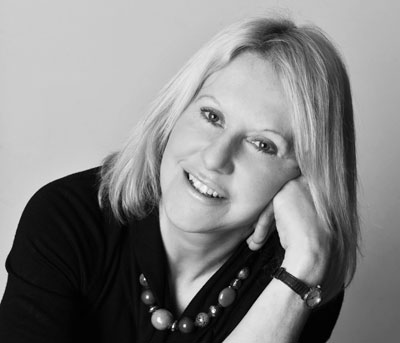
October 14, 2016, by The Ingenuity Lab
Susan Marlow: Empowerment through entrepreneurship
“When you get into a tight place and everything goes against you, till it seems as though you could not hold on a minute longer, never give up then, for that is just the place and time that the tide will turn” – Harriet Beecher Stowe
Throughout October, Britain celebrates the heritage, history, arts, culture and accomplishments of people across the African and African-Caribbean Disapora. A strong theme running throughout this years’ events focus on how individuals and communities have overcome adversity, broken down barriers and challenged perceptions throughout history.
As well as joining The University of Nottingham in celebrating #NottsBHM at the Haydn Green Institute (HGI), Professor Susan Marlow is also exploring how other communities across the world are overcoming adversity and creating new ideas of what can be achieved.
The study, which is featured in the new HGI Impact Report, originally arose a decade ago after Susan was an external examiner for her co-investigator’s PhD thesis. She recently co-authored a paper published in the British Journal of Management with Professors Haya Al-Dajani, Sara Carter and Eleanor Shaw, exploring the extent to which entrepreneurship is a catalyst for easing poverty and empowering refugees in Arab countries.
The various conflicts in the Middle East that have occurred, and still are, over the past few decades have led to successive waves of Iraqi, Iranian, Kurdish and Syrian refugees arriving in Jordan. Due to the lack of work available for men who are part of these refugee communities, more and more women are using indigenous skills to inform home-based self employment, forming micro enterprises focused on high quality embroidered textiles.
“Despite the challenges of displacement and refugee status, women are able to make a substantial contribution to alleviating local poverty through entrepreneurial activity which empowers them, their families and communities”
Although many women’s efforts to create and sustain these micro enterprises has been successful, they still face a range of patriarchal barriers within their communities. These include the difficulties in being recognised as entrepreneurs; marketing goods; and taking time from family duties to produce their products. Because of this, a lot of these entrepreneurs work in secret so their families do not know they are selling their craft goods.
The original paper, which was featured in the British Journal of Management in 2015, is seen by many as an incredibly influential piece of research. Not only does it offer voice and visibility to a ‘hard to reach’, often marginalised group of women, but it also brings to light issues surrounding how the very people you would assume would support and help them – such as their husbands, fathers and brothers – can actually thwart their entrepreneurial efforts.
Susan and Dr Al-Dajani, from The University of Plymouth, have now turned their attentions to a research project called ‘Poverty Alleviation and Women Refugees in the Middle East: Empowerment through Grassroots Micro-Entrepreneurship‘, which is funded by the Economic and Social Research Council. Last week, they had their first meeting with partners from Turkey, Lebanon and Jordan, and the research is still very much in the planning stage.
We look forward to finding out about how their research progresses over the coming months, and can’t wait to hear more inspiring stories about how people are overcoming adversity on their journey to empowerment through entrepreneurship.
If you would like to find out more about Susan’s research, take a look at her website and keep your eyes peeled for when we upload the new HGI Impact Report onto our website on Monday.
Please do ensure you subscribe to this blog to keep updated about our events and activities! You can also follow us on Facebook, Twitter, LinkedIn and Instagram.
No comments yet, fill out a comment to be the first

Leave a Reply